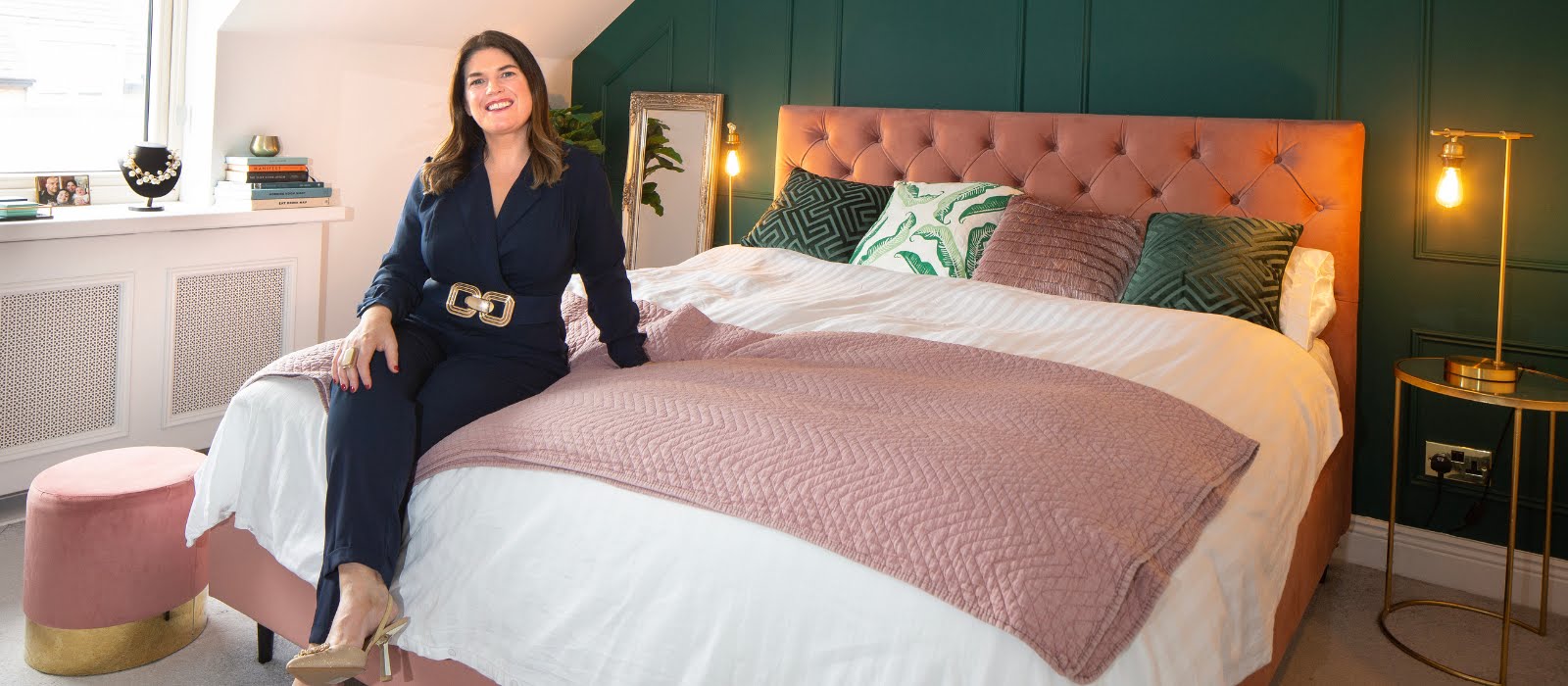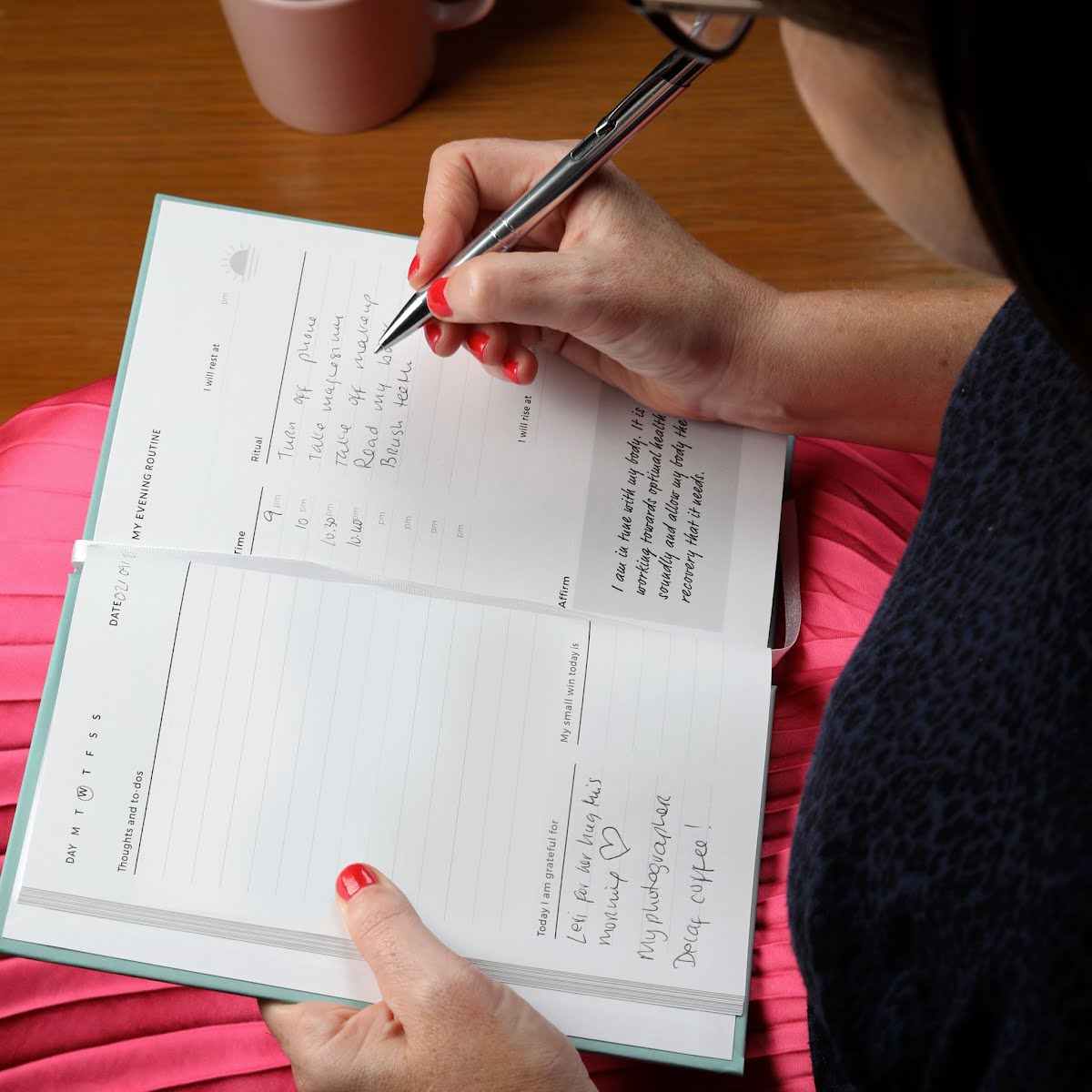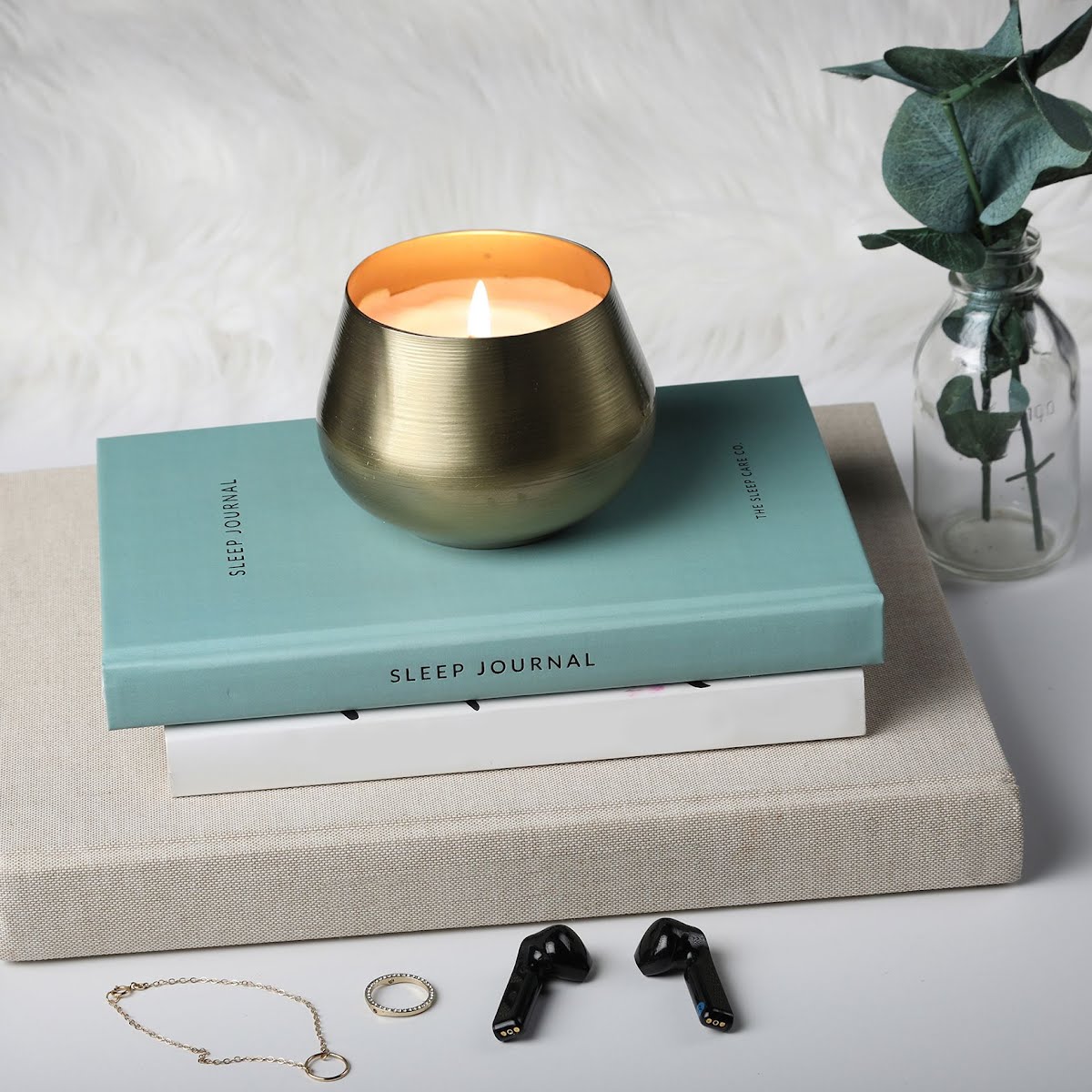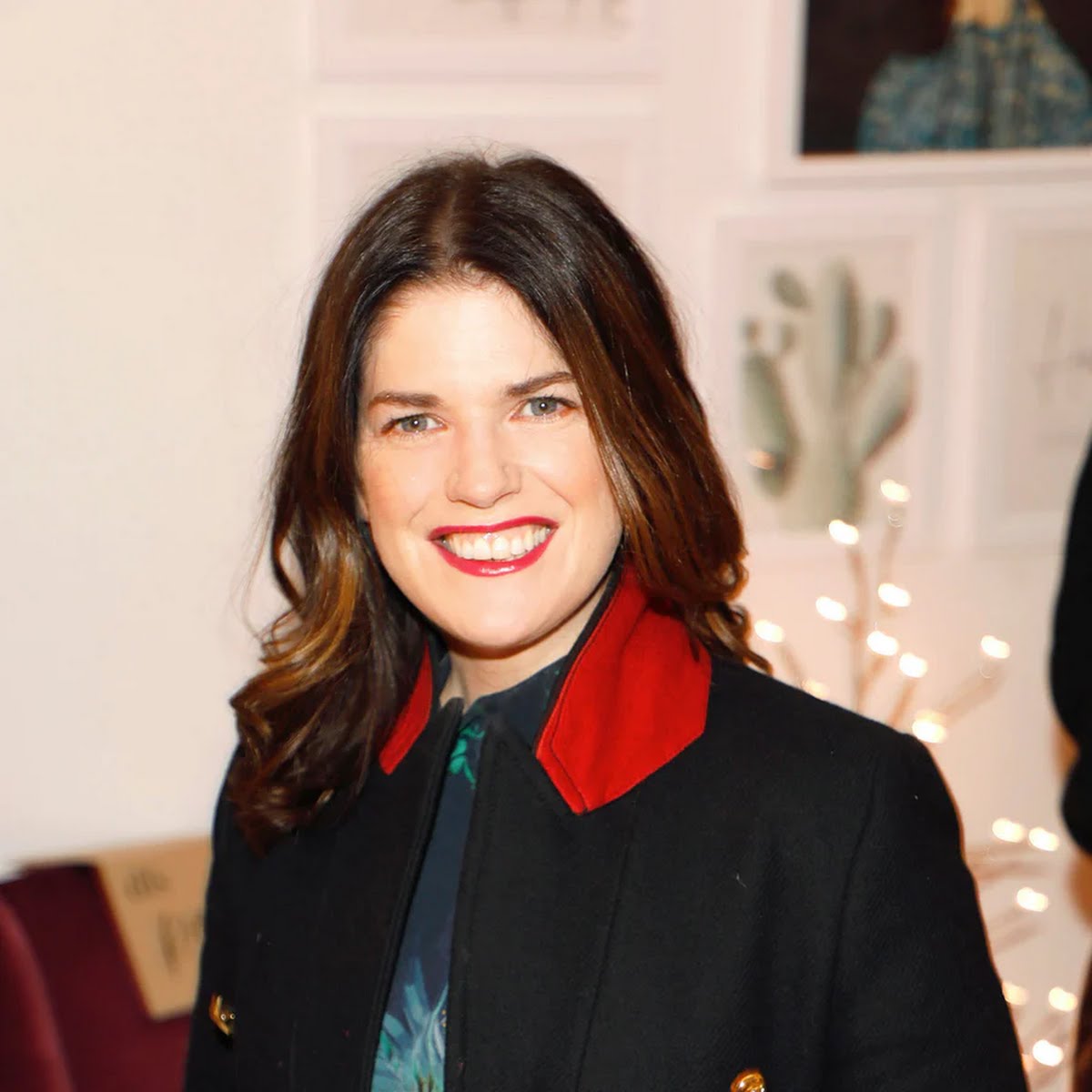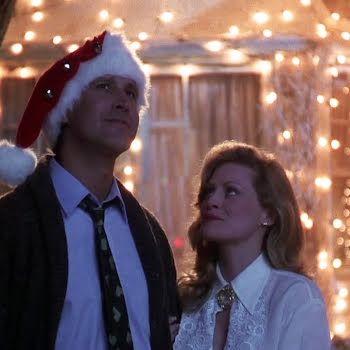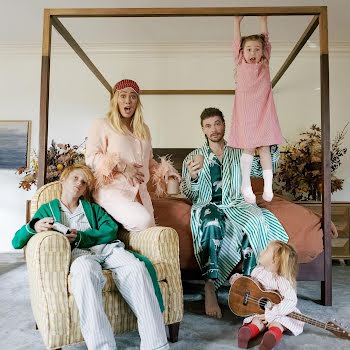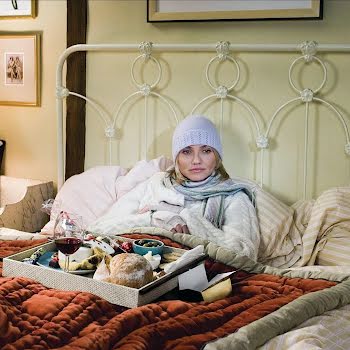
Tony Gavin
Here are some expert tips on how to get the best night’s sleep every time


From the viral TikTok Sleepy Girl Mocktail to the importance of food, hormone balance, and routine, we hear from sleep science coach and the founder of The Sleep Care Company on how to guarantee a good night’s sleep.
If you struggle to fall asleep at night, wake up feeling groggy, or even just fall victim to the ‘always on’ culture we’re living in, you need to make 2024 the year you prioritise your downtime.
A woman who struggled with insomnia during years of burning the candle at both ends, Anne Marie Boyhan set about creating a solution in the form of The Sleep Care Company. A certified Functional Diagnostic Nutrition Practitioner and sleep coach, Anne Marie wrote a Sleep Journal to help build a consistent evening routine and nourishing sleep rituals, developed an Insomnia Solution private coaching programme, and prides herself on helping her clients take control of their sleep.
We sat down with The Sleep Care Company founder Anne Marie Boyhan to chat about her business, sleep hacks, and top tips for overcoming insomnia.
What inspired you to start The Sleep Care Company?
After two years spent struggling with sleep, I became passionate about helping others sleep well. I was also frustrated as I couldn’t find the sleep and emotional help that I needed in one place — insomnia can be an isolating journey. So, I decided to leave my corporate career and retrain, creating a career and a lifestyle by design and on my terms. The Sleep Care Company was founded in early 2021.
What were your struggles with sleep and how did you overcome them?
I was stressed, sleep deprived and—little did I know it until the doctor said it to me—rapidly burning out. A successful and award-winning marketer in the corporate world, working full time and having two babies at home (whom I never saw as I worked so much), I never knew how to unwind. I was always on at work or for my family, and I didn’t know the meaning of a good night’s sleep for two years.
This led to a health scare and that trip to the doctor, who told me I needed some time off. That moment was my wake-up call. It turns out that the stress was causing my sleep deprivation, but also other things that I never knew about until I became obsessed with the topic of sleep and how to get better. I read every book and (nearly) every sleep science paper, gobbling up everything the sleep experts advised.
I believe sleep issues are both physical and mental and I have now based my method, The Insomnia Solution, on this premise.
I wrote The Sleep Journal, a 90-day wellness journal to guide you to better sleep. I left the corporate world and studied to be a sleep science coach for adults and studied functional diagnostic nutrition. I carried out nutrition lab tests on myself and found out I had a parasite, liver and blood sugar issues alongside an autoimmune disorder called Hashimoto’s thyroiditis — all contributors to my insomnia. Who knew?
I worked with a functional diagnostic practitioner to resolve these issues through health coaching, involving diet and lifestyle changes, emotional support and accountability to take daily action. I’ve learned that food really is medicine and that the body keeps score. Once my health came back, so too did my sleep.
I believe sleep issues are both physical and mental and I have now based my method, The Insomnia Solution, on this premise. I am helping clients around the world resolve their insomnia via my telehealth clinic. I also believe in educating people about sleep and have made it my mission to change the narrative, that to be productive, we need to prioritise sleep.
If a leader is getting up to speak and they haven’t slept well, what message does that send out to employees? Functioning on four hours of sleep is the equivalent of being drunk on the job. As part of this mission, I offer sleep wellness talks, webinars and workshops to companies as well as help shift work employees.
What are the most common causes of sleep deprivation you see in women?
Stress, for sure. The mental load that women carry is far greater than men, and usually, sleep is the first thing to go when we are busy and stressed. We are also conditioned by society not to prioritise sleep and not to prioritise ourselves, but you can’t fill anyone else’s cup until yours is full. I learned that the hard way.
When we sleep well, we improve all parts of our lives, mentally, physically, health-wise, and more importantly, performance-wise. We can conquer the world once we sleep well. It’s no wonder that professional athletes prioritise their sleep. I see it as the secret sauce for being sharper and more focused in your job.
Often, people come to me with insomnia, and they don’t know what’s caused it and it’s my job to find the root cause and fix it.
How do hormones play a role in our sleep quality/duration?
Hormones are crucial for sleep and quality of life. For example, after a bad night’s sleep, studies have shown a reduction in leptin and elevated ghrelin, affecting our appetite and our weight. The human growth hormone does its best work between 10pm-3am, so if we don’t sleep during that time, it’ll affect our fat metabolism, our collagen production and appearance the next day — it’s called beauty sleep for a reason.
Hormones play a huge role and that’s why when I work with clients, checking their hormones and doing a full MOT to look under the hood to see hormones, gut health, neurotransmitters, minerals, and heavy metals, as well as look at the psychological and behavioural side of sleep and their autonomic nervous system.
I also see imbalances in testosterone not just causing insomnia, but feelings of apathy and a lost zest for life.
Cortisol is major, it’s our stress hormone but also shows how our circadian rhythm is doing. For example, if you are waking in the night it could be as a result of a cortisol spike and there are many reasons and internal stressors that cause this, as well as external stressors like pressure at work. We are diurnal creatures, built to sleep at night and be awake during the day, and as such we need cortisol in the morning to wake us up. Eustress, the good cortisol, gets us through a presentation to 100 people, for example. If our cortisol and circadian rhythm are off then it affects our sleep.
Our sex hormones also affect our sleep, as does our thyroid hormone which I see huge issues for women aged 40+ affecting mood, weight and sleep. Regarding our sex hormones—testosterone, oestrogen, progesterone, DHEA—if one of them is out of balance, it can have a knock-on effect on our sleep. It’s like an orchestra, all the instruments should be playing in tune.
I also see imbalances in testosterone not just causing insomnia, but feelings of apathy and a lost zest for life. It’s often a relief for people when I give them their results on paper and know that they’re not going mad, that it’s not all in their head and knowing that they can get a sleep plan and do something about it.
I would say if your sleep is affected and you’re in your 40s or 50s, get your hormone levels checked and get the right support because perimenopause and menopause really disrupt our sleep, but we can do something about it.











